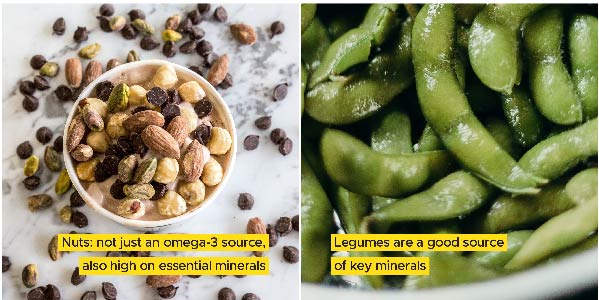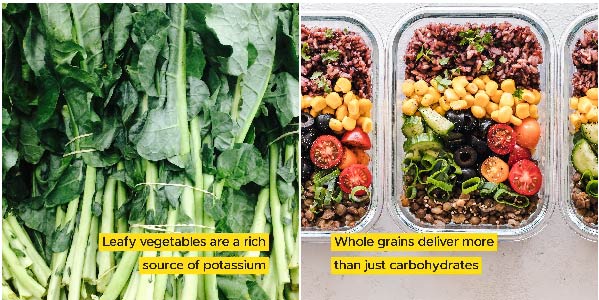Nuts: not just an omega-3 source, also high on essential minerals
Most of the commonly-eaten nuts provide magnesium in good quantities, and in addition, almonds, peanuts & pistachios are high in potassium, walnuts in phosphorus, brazil nuts in selenium, the list goes on. So it’s best to eat a combination of nuts daily, to get in all the minerals you need. Interestingly, roasting nuts doesn’t diminish minerals, so no worries there. But roast dry to be healthier, avoid the oil & salt.
Legumes : good source of the key minerals
The legume family – beans and lentils – provide more than fiber and protein. They’re also a good source of important minerals like iron, manganese, potassium, folates, zinc and more. To get a greater range of minerals, include a variety of beans & lentils in your diet. Beans contain phytic acids that inhibit full mineral absorption by the body, so soak overnight and discard the soaking water, as that eliminates the acids. |





